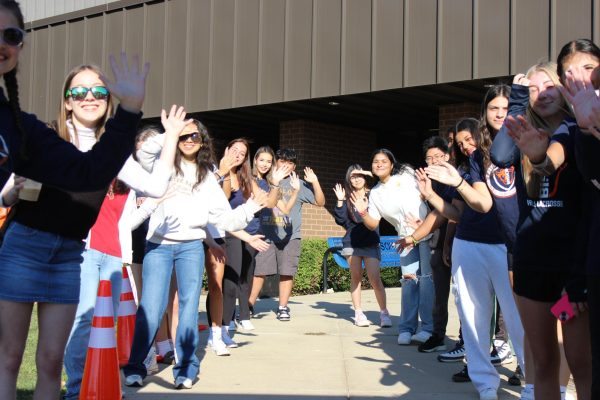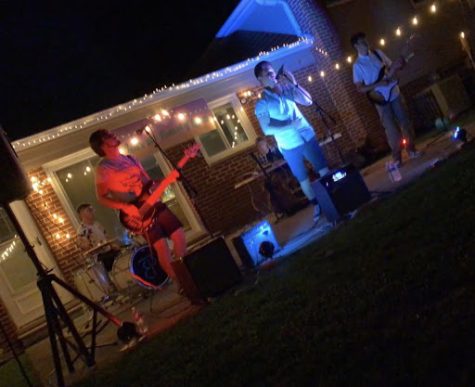Artists implement Green touring in effort to be eco-friendly
With Earth’s climate changing faster than at any point in the history of modern civilization, primarily as a result of human activities, the music industry has begun to evolve to become more eco-friendly. Artists have done so by implementing green touring, which involves requesting locally grown and/or plant-based catering and decreasing the number of travelling tour crew members. Additionally, selling merchandise manufactured from sustainable materials and using energy-efficient stage lights.
“I think green touring is something that’s bringing awareness more than anything,” junior Angela Perez said. “Artists and celebrities are specifically green touring to let everyone know that there’s something that can be done within the environment.”
Green touring has been around for decades, with musicians including Neil Young and Bonnie Raitt. Now, bands such as Maroon 5 and Coldplay, as well 18-year-old pop singer Billie Eilish , are using this method to spread awareness about climate change. According to CNN News, Eilish has made the announcement that at her upcoming world tour, venues are banned from giving out plastic straws and are required to have water refill stations, which are expected to eliminate over 35,000 single-use water bottles from her concerts.
“[Eilish’s] policies, which consist of banning plastic and having water bottle refill stations further inspires people to think about these things,” sophomore Zach Duvel said. “With these major stars doing this, maybe they can influence lesser-known stars and they can have an effect in the music industry.”
The carbon footprint of the music industry has decreased since the 1990s due to the fact people used to buy music on a cassette tape or a CD, while it’s now available to listen to on iTunes and Spotify. According to a 2018 study conducted by the news platform Euronews, purchasing music digitally reduces the energy and carbon dioxide emissions associated with delivering music to customers in the form of hard copy CDs by between 40% and 80%.”
“Records, CDs, DVDs and cassette tapes were all made from petroleum,” AP Environmental Science teacher Brian Vanderark said. “By digitizing music and other forms of electronic entertainment, fewer records, CDs and cassette tapes have been produced, which has reduced petroleum use, leading to a reduction in air pollution.”
With venues banning plastic products at Eilish’s upcoming tour, companies like Dasani and Ice Mountain may have a difficult time attracting consumers to purchase their products, which can lead to a loss of revenue.
“It puts pressure on [Ice Mountain and Dasani] to think about how to stop being wasteful and make environmentally friendly advances,” Duvel said. “Additionally, how they will manufacture and distribute their products, because when they are banned from selling those, no one is purchasing, so they’re losing money.”
According to Perez, she believes green touring can reduce the amount of plastic that ends up in landfills, which in the US was 35.4 million tons in 2019. Additionally, according to The Atlantic, this concept can reduce the amount of plastic in the Pacific Garbage Patch which has increased since 2016 and has killed 100,000 marine mammals every year. This includes whales, dolphins, porpoises, seals and sea lions.
“The reduction of single-use plastics and the reduction of straws can contribute to saving marine life,” Perez said. “There are so many shows that produce a lot of waste, when it comes to that, you really think about the small things that lead to the bigger effects.”
Green touring isn’t just in the music industry; it’s also in the acting industry. Actress Anne Hathaway, during the 2017 press tour of her movie “Colossal,” made a commitment to only wear eco-conscious fashion such as vintage and recycled dresses. Additionally, actress Drew Barrymore founded Flower Beauty, an eco-friendly makeup line that produces in the U.S. to avoid the environmental impact of shipping and transporting.
“I think anybody who has a platform like that –musicians, actors – they all have a position of authority where they can influence society,” Vanderark said. “There are a lot of people who might not know much about the environment, but if they go to a concert or a show, they’ll get a certain education and hopefully have a new perspective on the environment.”





